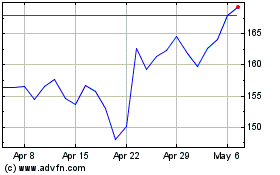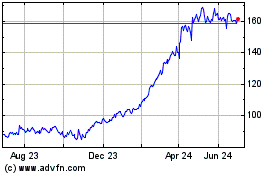By James R. Hagerty
Growing up in rural West Virginia, Winston Shelton had free
access to his father's tools and a junk pile. With an older
brother, he built a slingshot to fling apples at neighboring boys
and converted a discarded washing-machine motor into propulsion for
a toy wagon.
The U.S. Army refined his mechanical skills by sending him to
Princeton University during World War II to study engineering.
After the war, he joined General Electric Co. and helped
redesign washing machines, making them less likely to break down or
let socks get sucked into drain pipes. He set up his own company in
the late 1960s with a plan to build a better lawn mower. Then he
discovered a more pressing need: Kentucky Fried Chicken outlets
wanted larger and more efficient cookers.
His Louisville, Ky.-based firm, now called Winston Industries,
developed Collectramatic pressure fryers, versions of which are
still widely used. Col. Harland Sanders, founder of the chicken
chain, praised the fryers and supported Mr. Shelton's business by
cosigning a loan.
At the urging of his wife, Dolly, Mr. Shelton asked Norman
Rockwell to paint a portrait of Col. Sanders. Mr. Rockwell said he
was too busy but relented when the entrepreneur refused to accept
no for an answer.
[ Read letters between Mr. Shelton's company and Norman
Rockwell. ]
Mr. Shelton died April 15 at age 96.
In a memoir, he traced his inventive genius to having grown up
with "so many junkyard machine parts and just a few store-bought
toys." As a young man, he helped manage a sawmill owned by his
father.
"You didn't call a mechanic back then, you did the job
yourself," he wrote.
Winston Laverne Shelton was born May 3, 1922, in Lockwood, W.Va.
During his early childhood, the family's house was lighted by
kerosene lamps, and the toilet was outdoors. When Winston was about
4 years old, his parents opened a gas station and restaurant in
tiny Two Run, W.Va.
His mother, Opal Dell Shelton, ran the restaurant, where pies
were displayed in a glass case. "She taught us that when a customer
came through that door, even if you were busy, you looked up and
smiled," Winston Shelton wrote in his 2018 memoir. He also pumped
gas in the service station run by his father, Naaman Shelton.
Winston thought about becoming a lawyer and enrolled at
Glenville State College in West Virginia in 1941. In 1943, he was
inducted into the Army. He expected to be shipped overseas to
fight. Instead, the Army sent him to study for 18 months at
Princeton, where he recalled spotting Albert Einstein, and then
assigned him to the Army Signal Corps. He worked on radar and
communications projects in New Jersey and California.
While in the Army he boxed as a middleweight and won 18 of his
21 bouts, he later recalled.
After Mr. Shelton earned an electrical engineering degree at
West Virginia University in 1948, GE recruited him for its
home-appliances business. The company was trying to improve its
washing machines, which Mr. Shelton found were too expensive,
complicated and prone to breakdowns. "When spinning the clothes,
the entire unit literally danced across the floor," he wrote.
He was on a team that devised a simpler, more reliable washer,
with two motors instead of five and one pump instead of two.
He met Hazel "Dolly" Crider, a Rider University student, in 1948
at an Arthur Murray dance studio in Trenton, N.J. For their first
date, they went swimming at the Jersey shore. They married in
September 1952.
One of the ideas he championed at GE came from his wife: a
basket inside a washer to handle small loads of delicates, saving
water and energy.
By the late 1960s, Mr. Shelton was frustrated with what he saw
as GE's resistance to many of his engineering ideas. He left the
company in 1969 to start a company with his older brother, Naaman
Shelton Jr.
While tinkering with a new type of lawn mower that would pivot
on an axis, making turns easier, Winston Shelton was hired to
evaluate a cooking timer for KFC fryers. He saw a need for
rethinking the design of chicken fryers. During pressure cooking,
bits of chicken fell off and burned in the shortening, creating
gunk and requiring workers to frequently interrupt their work to
clean the devices.
Mr. Shelton's solution was a filtering system that let the
crumbs sink into a cylinder mounted beneath the cooker. He recalled
Col. Sanders's initial reaction to his Collectramatic cooker:
"You've really got something there."
Other fast-food challenges presented themselves. Cabinets
designed to keep food hot tended to dry it out. So Mr. Shelton
invented what he called Controlled Vapor Technology, or CVap, to
keep food hot and moist. Chefs found it also worked well for
cooking meat and seafood.
One of his daughters, Valerie Shelton, is now CEO of Winston
Industries. The company has manufacturing plants in Louisville and
employs about 250 people. Aside from making restaurant equipment,
Winston does contract manufacturing and makes prototypes for other
firms. Its food-service equipment is used in 110 countries, Ms.
Shelton said.
His first wife, Dolly, died in 1997. He is survived by his
second wife, Joyce Fullerton Shelton, as well as three children, 10
grandchildren and eight great-grandchildren.
Write to James R. Hagerty at bob.hagerty@wsj.com
(END) Dow Jones Newswires
April 26, 2019 10:44 ET (14:44 GMT)
Copyright (c) 2019 Dow Jones & Company, Inc.
GE Aerospace (NYSE:GE)
Historical Stock Chart
From Mar 2024 to Apr 2024

GE Aerospace (NYSE:GE)
Historical Stock Chart
From Apr 2023 to Apr 2024
